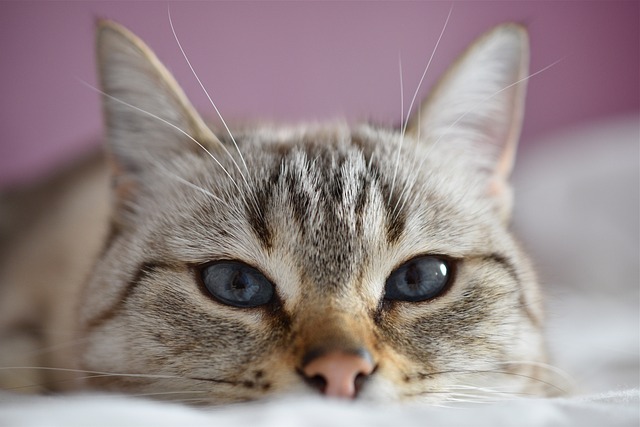Here is a scenario well known to cat owners: you are in your pajamas, you have finally found the ideal position to fall asleep, and here is the cat who joins you. A quick inspection of the premises is enough for her to decide that your face is the perfect place to put her hairy butt. But “why does my cat sleep on top of me”?
You’ve given your cat a cozy basket, perches, and she can sleep anywhere in your home. Why, out of all these options, does your cat insist on sleeping on you?
Cats are mysterious creatures, but there are several theories and meanings as to why cats like to sleep on their master.
Cats sleep patterns are different from humans
To understand why our cats sleep on us, it may be helpful to examine how cats’ sleep patterns are different from ours. Cats re-energize by taking multiple naps throughout the day. But these naps are usually light sleep, rarely putting them into a deep sleep.
Unlike humans, cats are always ready to attack prey or defend against a larger predator. Even when they seem soundly asleep, their hearing and smell are still sharp enough to prompt them to take action when needed. As cats are always on the alert, it makes sense that they seek additional protection by snuggling up to their master. You give them even more security during their sleep when they are most vulnerable.
Should you let your cat sleep with you?
In short: it is really a personal choice.
There are several advantages and disadvantages to letting your cat invite herself to your bed.
Benefits of letting your cat sleep with you
• Stress relief: Studies show that petting our cats and dogs releases the feel-good hormone oxytocin. It also lowers our cortisol (stress) level. A recipe for perfect sleep!
• Creation of links. If you’re not home today, bedtime can be a great time to make up for lost time and hugs.
• It’s warm and comfortable. There’s no denying the comfort factor when it comes to letting your cat sleep in his bed.
Disadvantages of letting your cat sleep with you
• It can disrupt your sleep. In general, cats are more active in the evening (although they can adjust to your sleep schedules).
• Hygiene issues. Indoor cats can bring litter grains to your bed, and outdoor cats can be potential carriers of the disease.
• The discomfort. If your cat prefers to sleep on your chest or on your head, this can get awkward, especially if it is overweight. In addition, you may inhale a small amount of cat hair with each breath.
One thing to keep in mind: cats should not be allowed to sleep in the company of children under the age of five, and NEVER in the company of a baby due to the risk of suffocation. A nervous or very fearful cat can even run wild and scratch a child if caught in their sleep.
What to do if your cat is interfering with your sleep
Your cat can of course develop bad bedtime habits, which can have negative effects on your sleep, nibbling your toes, meowing for attention, kneading your chest, etc. Unfortunately, a cat’s internal clock doesn’t quite match our own sleep patterns. They can be restless in the early evening and early morning. But don’t worry: cats can usually get used to our schedules.
One way to help your cat get a restful sleep is to actively play with it before bed. Then give him food. In no time at all, you will both be yawning. Dr. Satchu recommends feeding cats most interested in food overnight: “Program an automatic food dispenser to go off every 1 to 2 hours while you sleep. This will allow your cat to spin around this magical machine, leaving you to sleep in peace. ”
A morning distraction can also help. If you can, set up a bird feeder outside a window your cat can sit next to. This can keep him busy between 4 and 6 a.m, the time birds typically eat, and your cat will likely stare at its new “TV chat” all morning, adds Dr. Satchu.
Another trick is to sleep with your bedroom door slightly opened so your cat can escape without waking you up. Leave a few (silent) toys around in case it gets bored overnight.
A cat heating pad could also be your best ally if your pet is preventing you from snoring peacefully.
In some cases, it may be necessary to completely deny your cat access to the room. “Some cats have to learn that at night they will be separated from humans,” says Dr. Satchu. “Some of them will meow in frustration until early hours of the morning. If this happens, it may be helpful to talk to your vet to see if any nutraceuticals can help your cat relax. ”
If your cat wakes you up, do not reward his behavior (for example by feeding him) so as not to risk him repeating it. And whatever approach you choose, keep in mind that changing your cat’s behavior is a lesson in patience.







